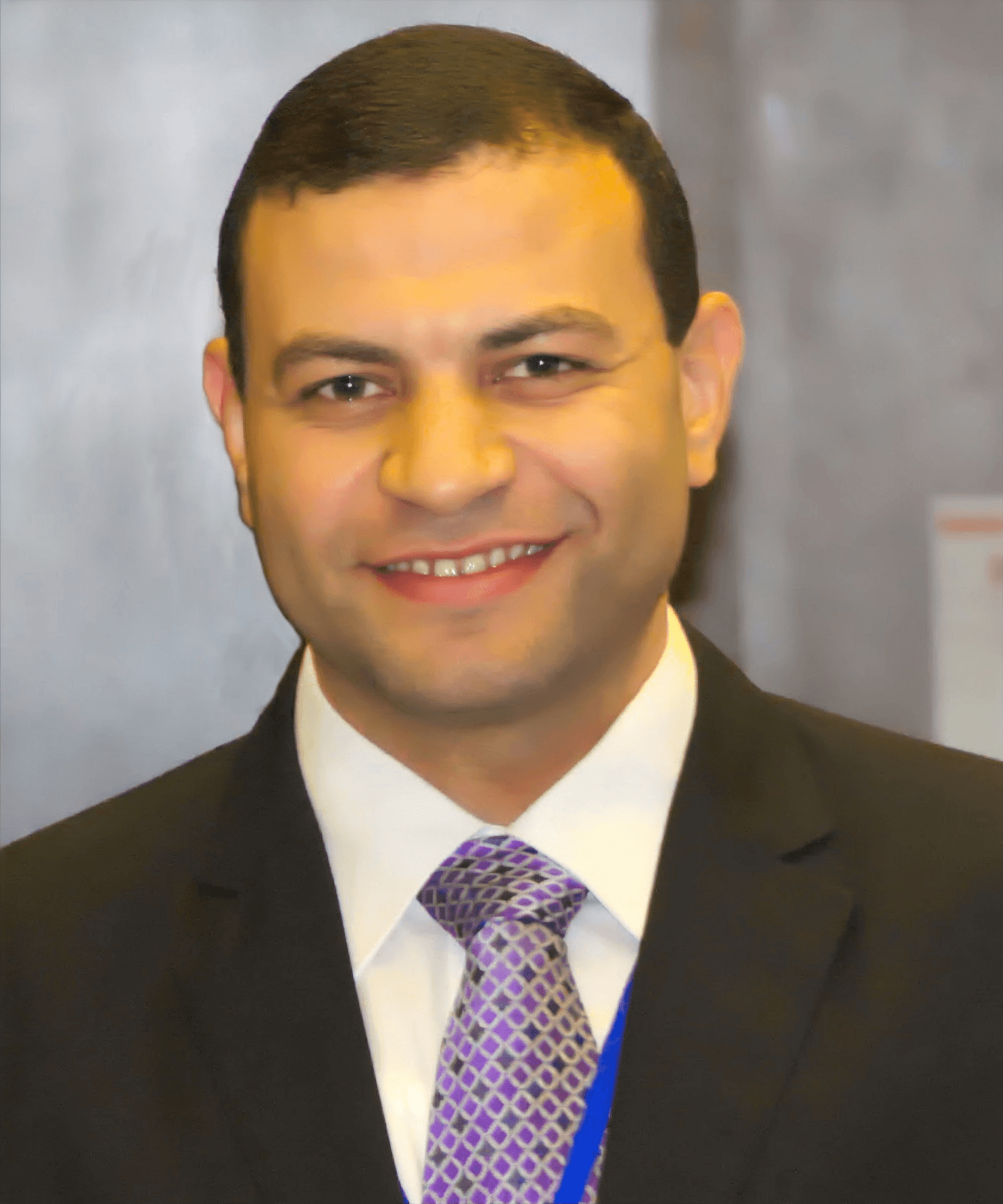Industry Keynote Speakers
ICDCS 2025 is honored to welcome our distinguished industry leaders in distributed computing systems as our keynote speakers for the Industry Event track.

Dr. Mohamed Eldessouki is an accomplished researcher, academic, and entrepreneur specialising in smart materials and digital innovation. He is the Founder and Director of Digital Innovation Centre (DigInnoCent s.r.o.) in Liberec, Czech Republic, and served as an Associate Professor at both the Technical University of Liberec (Czech Republic) and Mansoura University (Egypt).
He previously worked as a Scientist and Marie Skłodowska-Curie Fellow at Empa – The Swiss Federal Laboratories for Materials Science and Technology in Switzerland. Dr. Eldessouki holds a PhD in Polymer and Fibre Engineering from Auburn University (USA), where he also earned two Master’s degrees in Chemical Engineering and Polymer and Fibre Engineering.
His research focuses on scientific computation and sustainable solutions. His areas of expertise include materials-informatics, smart and functional materials, multi-scale modelling, artificial intelligence, computer vision, and X-ray computed tomography.
Abstract
This keynote presents a comprehensive exploration of distributed AI systems addressing planetary-scale challenges through real-world European projects, demonstrating how edge computing enables intelligent decision-making processes. We examine three innovative projects: CloudMATE for structural health monitoring (SHM), SETO for smart transport enforcement with on-board weighing systems, and NATURE-DEMO for climate-resilient infrastructure through nature-based solutions (NbS).
The presentation addresses critical distributed systems challenges, including real-time data processing from high-frequency sensors over narrow-band networks, edge-cloud load balancing for AI analytics, and maintaining stakeholder visibility while optimising network utilisation. Through practical implementations, we demonstrate novel edge computing architectures that enable intelligent processing at the sensor level while ensuring critical data reaches cloud systems for digital twin creation and AI-driven decision making.

Dr. Raúl Gracia is a Senior Principal Research Scientist at Dell Technologies, where he conducts research in edge computing, cloud analytics, data management, and storage technologies. Raúl holds a Ph.D. in Computer Engineering (2015, Outstanding Thesis Award) from Universitat Rovira i Virgili (Tarragona, Spain) and has completed a research internship at IBM Research and Tel Aviv University.
Raúl has over a decade of experience in both academic and industrial R&D. He has authored over 30 publications, holds multiple patents, and received awards from top venues like ACM IMC’15 (Best Dataset) and ACM/IFIP Middleware’23 (Best Paper).
Raúl spent five years at Dell Technologies as a member of the engineering team for the Pravega project—a novel distributed storage system for data streams at the core of the Dell Streaming Data Platform, a new product launched in 2020. He is currently leading the participation of Dell Technologies in EU research projects (e.g., NearData, CloudSkin).
Abstract
Over the past decade, data streaming has evolved from a niche capability into a core component of modern data and AI infrastructure. As organizations increasingly demand real-time insights, data-intensive pipelines, and long-term data retention, event streaming systems have increasingly taken on storage responsibilities. This keynote begins by exploring the motivations behind this architectural shift, illustrated through real-world examples and practical experiences. In particular, we revisit our journey in this space through the design and evolution of Pravega: a tiered, elastic, and byte-oriented storage system for data streams.
In the second part of the keynote, we position that the “streaming storage” paradigm unlocks new challenges and opportunities. As an example, we highlight two ongoing research efforts grounded in this foundation: (i) a unified FaaS analytics framework built atop streaming infrastructure, and (ii) a programmable data mesh for managing tiered stream data. Via real-world use cases, these systems show how streaming storage can serve as a substrate for next-generation data platforms.
We conclude by outlining future directions at the intersection of streaming and storage by highlighting key industry trends and research questions that will shape the future of data-intensive and AI-driven applications.
